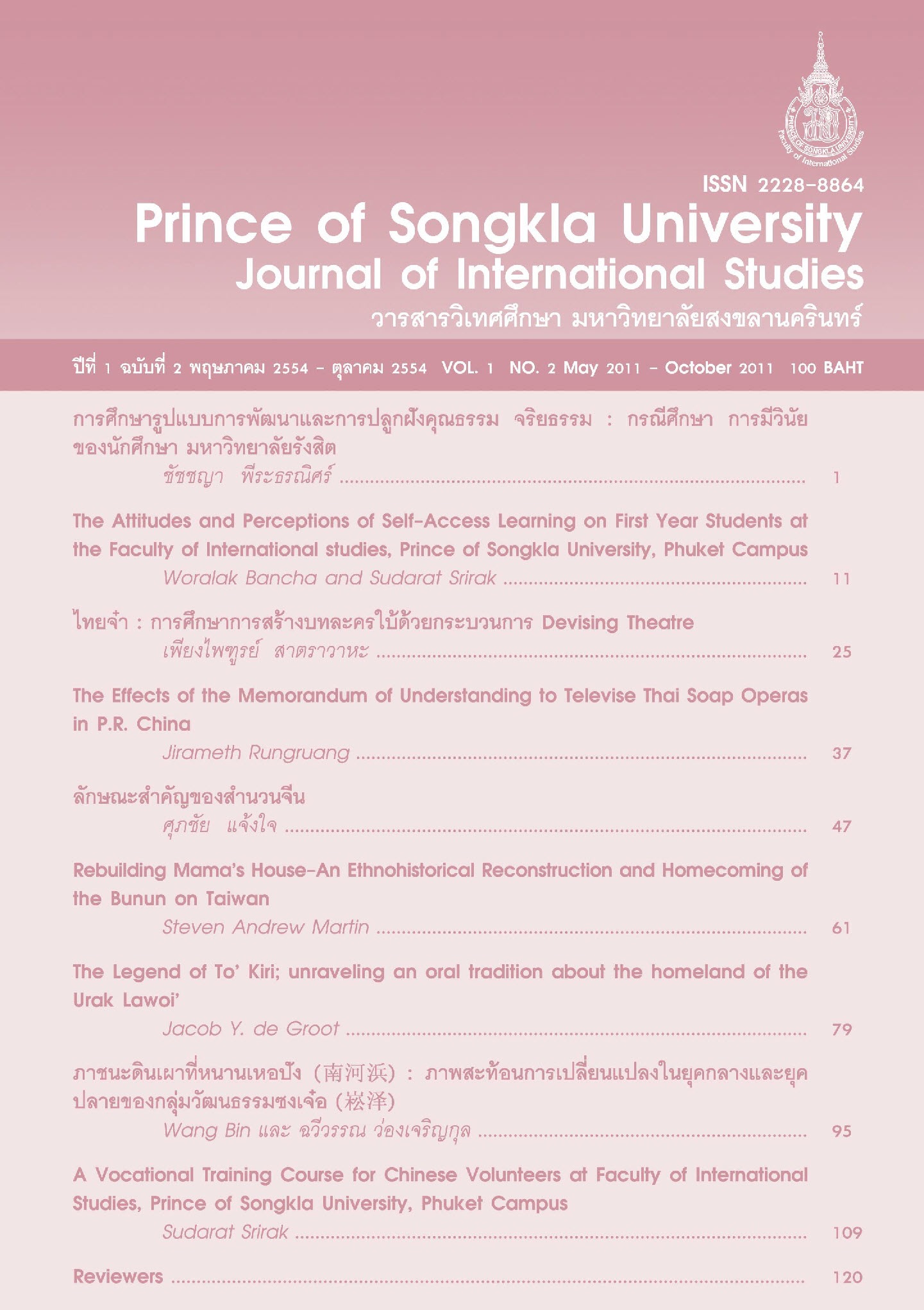Characteristics of Chinese Idiomatic Expressions
Main Article Content
Abstract
Learning Chinese idiomatic Expressions is difficult for Thai learners. Explanation of idiomatic Expressions in textbooks is holistic; it doesn't include the important characteristics of them. In linguistics, idiomatic Expressions are often considered free words. However there are special characteristics which separate them from common words and fixed phrases or sentences, the appearance of which cannot be changed freely. Idiomatic Expressions often have a fairly confined form; a melodious sound and an attractive way of use; a grammar that is different from common language. The meaning of an idiomatic Expression is usually not that what is indicated in the group of words that appear in it, but it has a hidden meaning. Sometimes one must know its origin before one can understand its meaning. Apart from this, idiomatic Expressions make use of a language style that leaves the listener thinking or figuring out a comparison to fit an appropriate situation. They make stories easier to understand. Understanding the importance characteristics of Chinese idiomatic Expressions will make learners use them to communicate effectively.
Article Details
Statements and opinions expressed in articles herein are those of the authors and do not necessarily reflect the position of the editors or publisher.
Article, information, text, image, etc. which are published in Journal of International Studies, belong to Journal of International Studies. If anybody or any organization would like to use part or whole of them, they must receive written permission from Journal of International Studies before usage.
References
ราชบัณฑิตยสถาน (2525) พจนานกรมฉบับราชบัณฑิตยสถานฉบับ พ.ศ. 2522. กรุงเทพฯ: นานมีบุ๊คส์
ศูนย์พัฒนาหนังสือ กรมวิชาการ กระทรวงศึกษาธิการ. (2545). สํานวนไทย. กรุงเทพฯ : คุรุสภาลาดพร้าว.


